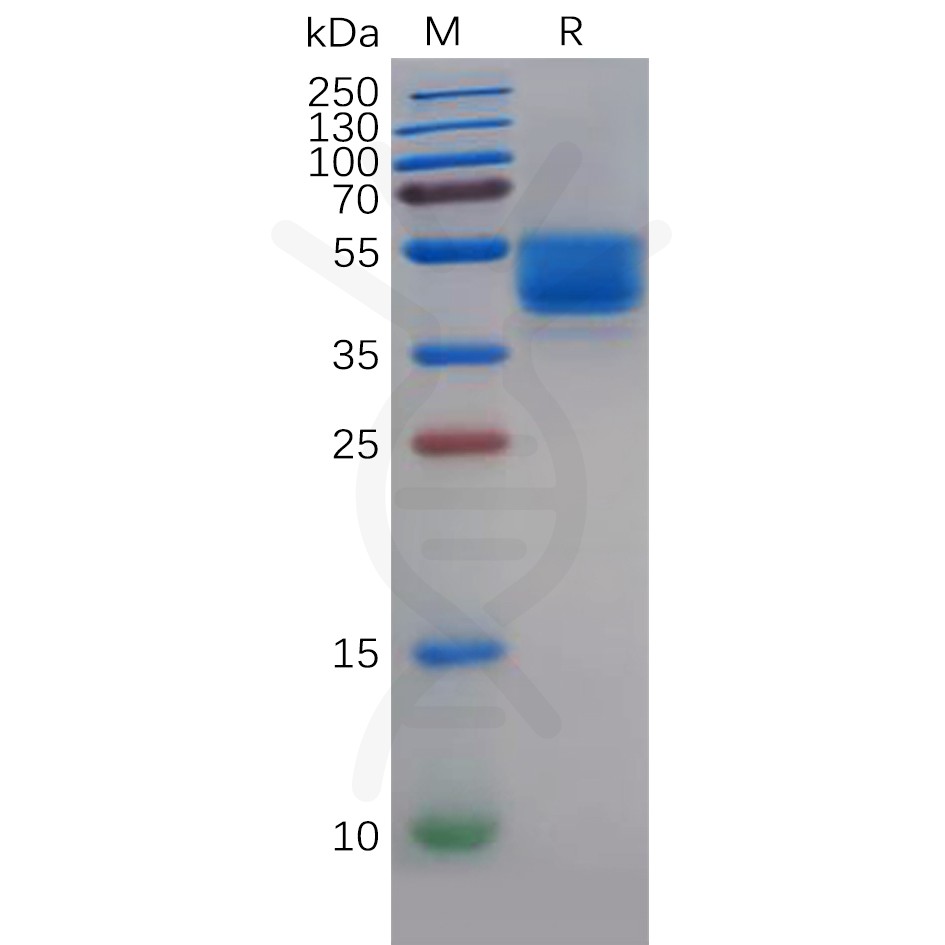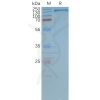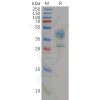| Target | |
|---|---|
| Synonyms | ABC20;CD243;CLCS;GP170;MDR1;P-GP;PGY1 |
| Description | Recombinant Human MDR-1(Phe72-Arg113) with C-terminal human Fc tag |
| Delivery | In Stock |
| Uniprot ID | P08183 |
| Expression Host | HEK293 |
| Tag | C-Human Fc Tag |
| Molecular Characterization | MDR-1(Phe72-Arg113) hFc(Glu99-Ala330) |
| Molecular Weight | The protein has a predicted molecular mass of 30.9 kDa after removal of the signal peptide. The apparent molecular mass of MDR-1-hFc is approximately 35-55 kDa due to glycosylation. |
| Purity | The purity of the protein is greater than 95% as determined by SDS-PAGE and Coomassie blue staining. |
| Formulation & Reconstitution | Lyophilized from sterile PBS, pH 7.4. Normally 5 % – 8% trehalose is added as protectants before lyophilization. Please see Certificate of Analysis for specific instructions of reconstitution. |
| Storage&Shipping | Store at -20°C to -80°C for 12 months in lyophilized form. After reconstitution, if not intended for use within a month, aliquot and store at -80°C (Avoid repeated freezing and thawing). Lyophilized proteins are shipped at ambient temperature. |
| Background | The membrane-associated protein encoded by this gene is a member of the superfamily of ATP-binding cassette (ABC) transporters. ABC proteins transport various molecules across extra- and intra-cellular membranes. ABC genes are divided into seven distinct subfamilies (ABC1, MDR/TAP, MRP, ALD, OABP, GCN20, White). This protein is a member of the MDR/TAP subfamily. Members of the MDR/TAP subfamily are involved in multidrug resistance. The protein encoded by this gene is an ATP-dependent drug efflux pump for xenobiotic compounds with broad substrate specificity. It is responsible for decreased drug accumulation in multidrug-resistant cells and often mediates the development of resistance to anticancer drugs. This protein also functions as a transporter in the blood-brain barrier. Mutations in this gene are associated with colchicine resistance and Inflammatory bowel disease 13. Alternative splicing and the use of alternative promoters results in multiple transcript variants. [provided by RefSeq, Feb 2017] |
| Usage | Research use only |
| Conjugate | Unconjugated |
服务热线
400-006-0995
18062749453






